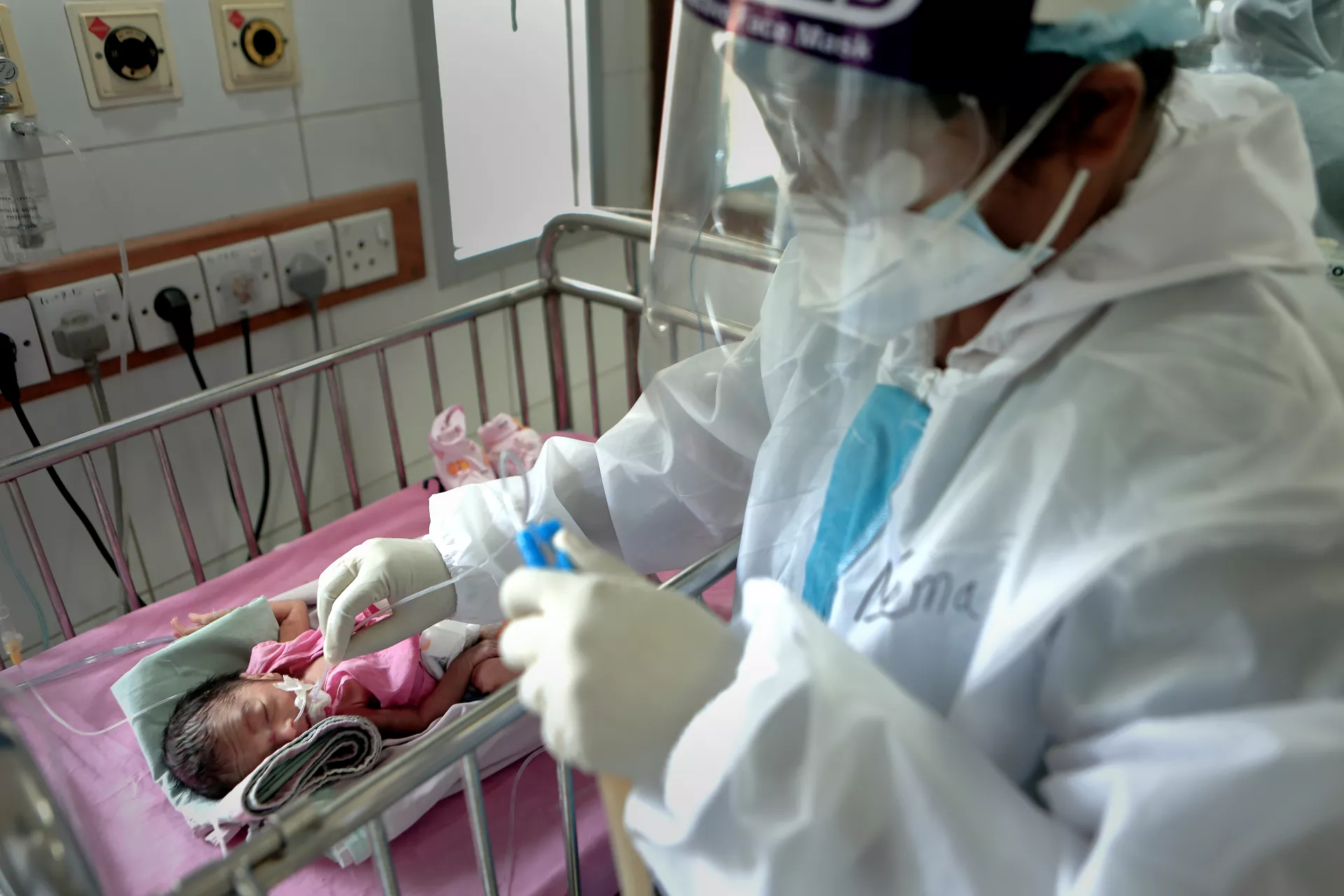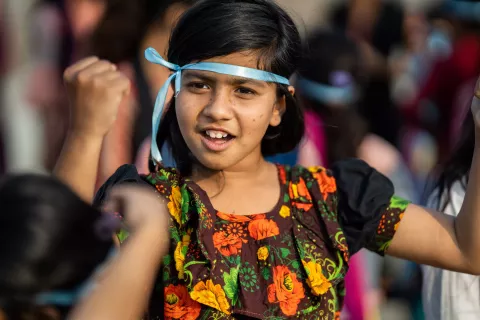Special Care Newborn Units affirm life as pandemic sweeps across Bangladesh
UNICEF-supported hospitals maintain critical life-saving services for premature and sick newborns

- Available in:
- বাংলা
- English
Taslima Begum, 35, gazes joyfully into her baby boy’s eyes and is grateful that he is still alive during these turbulent COVID-19 times. She credits one of two UNICEF-supported Special Care Newborn Units (SCANUs) in Sylhet for saving his life.
“I gave birth to my baby boy relatively smoothly and went home soon after giving birth. But after four days, I noticed that his skin was turning a worrying shade of yellow. I rushed him to hospital and was told that he was suffering from jaundice. He was given phototherapy and is now well on the road to recovery. I am so grateful to the medics here,” Taslima said.
Taslima is one of several mothers with sick young babies or with complications in the run-up to giving birth who have more reason than normal to be grateful for the two SCANUs that serve Sylhet and two other eastern Bangladeshi districts.
With much of the country in lockdown because of the COVID-19 crisis, it is especially difficult for pregnant women and young mothers from remote areas to travel to the hospital. Many are fearful of making the journey at all, believing that they are in danger of contracting the virus when they are in hospital.

Seriously underweight
Despite the prenatal and postnatal care provided in the 250-bed Moulavbazar district hospital, some babies tragically cannot be saved.
Salma Begum, 23, was rushed to the SCANU after her baby boy was prematurely born after seven months of pregnancy. He weighed only 1,600 grams when he should have weighed about 3,000 grams. Salma’s baby died in part because of the delay in getting to hospital and in part because he was seriously underweight.
“We tried to refer the baby and his mother to the tertiary level Sylhet Medical College Hospital which has one SCANU. But sadly, they did not want to go. Mainly because the COVID-19 lockdown and restrictions on travel but also because they couldn’t afford it. The baby's father was a day labourer and it was beyond his budget,” said UNICEF Maternal and Neonatal Child Health Specialist Dr Mirza Fazli Elahi.
The couple had to rush her to the SCANU when Salma began to feel acute pain at midnight, only arriving at two in the morning. Normally, this would not happen because SCANU mostly deals with babies suffering from complications after they have been born.
Finding any form of public transport at that hour is a challenge at the best of times but finding it in the middle of a lockdown posed serious difficulties.
“We were very scared, but by God’s grace we eventually found a vehicle though it took us too long to get to the hospital,” Salma said.

Best possible treatment
Such life and death encounters are routine for staff in the two SCANUs that serve Sylhet division in Moulavi Bazar district (15 beds) and in Sylhet city (50 beds).
Both specialise in birth complications and provide care to sick newborns who suffer from a variety of ailments including low birth weights, asphyxia and sepsis.
“Pregnant women or young mothers who come here must first of all be prepared to travel in a country that is in a lockdown to a hospital that many worry will only add to their medical complications. But when they do arrive here, we strive to give them the best possible treatment using up-to-date equipment and the highest standards of cleanliness,” says Junior Paediatric Consultant Dr Mozammel Haque.
Many mothers of the sick or premature babies treated at SCANUs are from the tea estates that surround Sylhet. UNICEF provides technical and infrastructure support to both hospitals including human resources, equipment, training, logistics and maintenance. All babies born in either of the two hospitals are registered, conferring on them the benefits of Bangladeshi citizenship including education and healthcare.
Senior Staff Nurse Ruma Rani Das says that staff at the hospital wear full personal protective equipment to protect against COVID-19 infection, and regularly wash their hands.
“The high standard of care is hugely reassuring to women at the hospital, many of whom are in pain or have critically ill babies,” she said.




